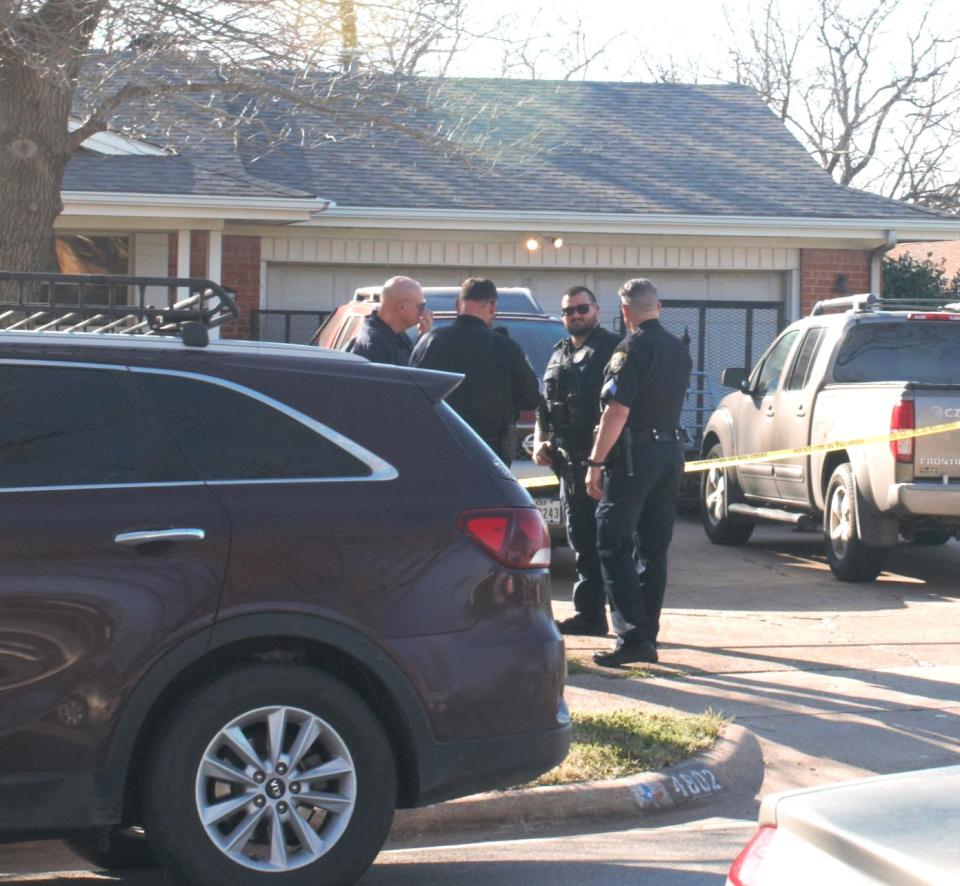Homicide vs. murder: Do you know the difference?
Five people have been shot to death in Wichita Falls so far in 2024. All of the deaths are homicides — but not all are necessarily murders.
Although the terms are often mistakenly used interchangeably, they don’t mean the same thing. —
“Homicide would be a general term of someone’s life being taken by another person,” said Sgt. Charlie Eipper, public information officer for the Wichita Falls Police Department. “Murder is knowingly and intentionally taking a life.”

Eipper said, “Homicide could be an officer-involved shooting but through investigation might be determined to be a legal use of force. The same would be true for anyone else who might take a life in a justified manner.”
Here are the homicides in 2024 that Wichita Falls Police are investigating as murders:
Jourdyn Jones, 23, was shot to death Tuesday during a robbery allegedly committed by two men. Traquan Cox Eliand, 17, of Wichita Falls was arrested Thursday in connection with the killing.
Deron Edward Royster, was shot through the eye with a pellet gun May 12. Darren Jerome King was arrested and charged with murder.
Stanley Ralicki, 69, was shot to death Feb. 22 at a home on Marsha Lane. His brother Raymond Ralicki was arrested and charged with murder.
Here are the homicides in 2024 that police have not labeled as murders:
Quincy Roman Moore and Sydney Terrell Brown were both shot at an apartment complex Jan. 21. Jamal Leron Locke was wounded by gunfire and told police he shot the men in self-defense.
Here are occurrences that fall under the broad umbrella of "homicide" according to Texas satutes:
Capital Murder. Can carry a death penalty, but that’s seldom requested by Texas district attorneys. Conviction carries a mandatory life sentence with no parole. To be "capital" a murder must meet certain criteria, such as occurring during the commission of another crime or involving the death of a child.
Murder. Without the "capital" enhancement can carry a prison sentence of five years to life.
Manslaughter. Recklessly causing the death of a person without premeditation. Can carry a prison sentence of two to 20 years. The charge encompasses these sub-categories:
Voluntary Manslaughter. Causing the death of someone by way of intentional but non-premeditated harm.
Involuntary manslaughter. Causing the death of someone unintentionally without malice or intent to cause serious harm.
Intoxication Manslaughter. Causing the death of a person by driving under the influence.
Vehicular Manslaughter. Causing the death of another person through negligent operation of a motor vehicle. Can be considered a felony or a misdemeanor depending on the circumstances.
Criminally Negligent Homicide. Occurs when a person ought to be aware of a substantial risk that their conduct will kill another person. Can carry a state jail sentence of 180 days to two years. If a weapon is used, the sentence can be two to 10 years in prison.
Texas law also recognizes some homicides as “justifiable” when committed in self-defense, for the protection of others or for protection of the home.
Whether a death moves through the legal system is usually determined by a grand jury with the authority to return criminal indictments.
This article originally appeared on Wichita Falls Times Record News: Homicide vs. murder: Do you know the difference?
